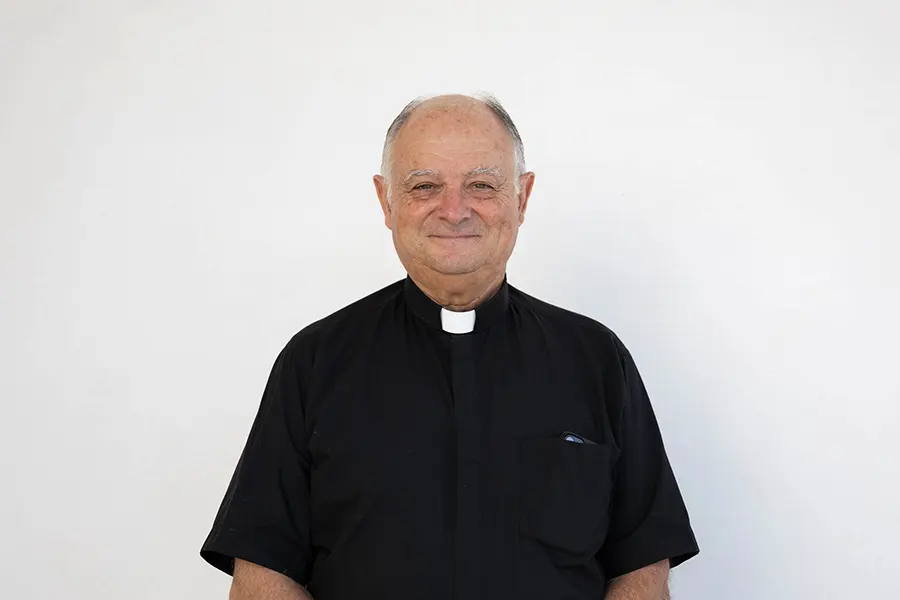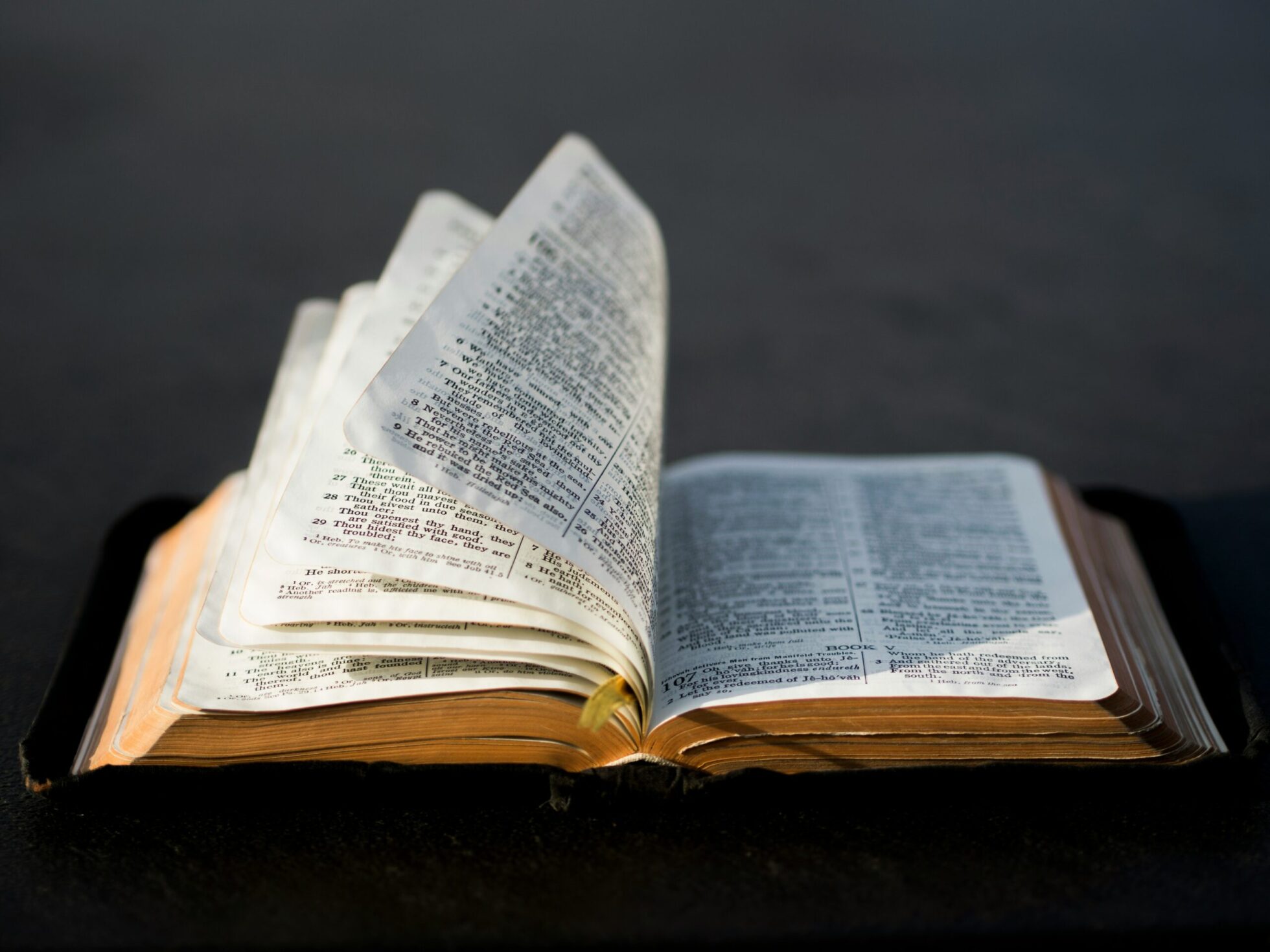We share an interview published on the Regnum Christi Spain website, in which Father Miguel Ángel Llamas, L.C., responsible for “The Word of God,” an initiative that shares a reflection on the Gospel daily via WhatsApp.
On the occasion of the Sunday of the Word, instituted by Pope Francis to foster people’s closeness to Sacred Scripture, we interviewed Fr. Miguel Ángel Llamas, L.C. For over ten years, Fr. Miguel Ángel has been sharing a daily reflection on the Gospel via WhatsApp to nearly a thousand people, with messages reaching countries such as Italy, Spain, Mexico, Argentina, and Chile. “In general, it is well-liked because it is short, essential, and can be listened to anywhere,” he explains about this apostolate, which occupies a fundamental place in his daily life.
To subscribe to “The Word of God” via WhatsApp, visit this link.
Fr. Miguel Ángel is 69 years old, a native of Jerez de la Frontera, and before joining the Legion of Christ, he studied veterinary medicine. Currently, he is the superior of the Legionaries of Christ community in Valencia (Spain), and supports Cumbres School and the adult section. Nonetheless, he dedicates about an hour and a half daily to prepare his messages in both Italian and Spanish. The effort is worth it: “We can ask the Bible at any moment in our lives: what would Jesus do in my situation?, and we will find the answer.”
Read the article published by Regnum Christi Spain
Father Miguel Ángel, how did the initiative of sharing the Gospel and a brief daily reflection through WhatsApp come about?
More than 10 years ago, during a conversation with a Mexican bishop who sent evangelical reflections via WhatsApp, I considered the opportunity to do the same. I asked for permission to copy his idea and started on May 27, 2014. My plan was to send an audio message via WhatsApp of no more than 4 minutes to a group I formed with friends from Mexico, where I had worked the longest. The goal was to help at least one person. The project started to grow, and I created other groups in Spain, Argentina, and Chile.
In 2015, I was appointed chaplain of the Adult Section in Rome, Italy, and when the Section Director learned about it, she “requested” that I also do it in Italian. Again, word of mouth kept working, and I had to open more groups in Italian, and I joined existing ones to send reflections. The same has happened now in Valencia. Currently, I send the reflection directly to nearly a thousand people: 300 in Italian and 700 in Spanish, I say directly because I know many people forward it to their groups, so I ignore the actual reach.

How do you manage to organize yourself to balance this work with your other apostolates?
The reflection lasts between 3.5 and 4 minutes. First, I provide context for the Gospel passage, then explain the passage itself, make an application to life, and conclude with two questions for personal reflection. I must say that in these 10 years, I have rarely missed sending the reflection, even when I was sick in bed or doing spiritual exercises.
It is something that occupies my daily routine, so it is included in my daily schedule. Preparing the reflection in Italian, translating it into Spanish, and recording it in audio takes me about an hour and a half. I prepare it the day before and send it out at 7:00 a.m. according to each country’s time zones.
What have listeners told you about the impact these messages have on their lives?
In general, it is well-liked because it is short, essential, and can be listened to anywhere. Many people have told me they listen to it with their children while taking them to school or going to work in the car, or while having breakfast—there’s something for everyone.
Read the article published by Regnum Christi Spain
In the context of the Sunday of the Word, what place do you think the reading of the Bible should have in the life of a Catholic?
The third Sunday of Ordinary Time celebrates the “Sunday of the Word of God,” instituted by Pope Francis in 2019 to foster in God’s People “a religious and diligent familiarity” with the Bible, through the apostolic letter in the form of motu proprio “Aperuit illis” of September 30, 2019. The Bible, especially the New Testament, is like a “manual of instructions” for Christians. In reality, the Bible is a living book that speaks to us constantly because it is a living word. The Gospels are not a biography of Jesus of Nazareth but sacred books loved by the Holy Spirit, the true author, to show us the life of Jesus: preaching and deeds that guide us in our Christian life. We can ask the Bible at any moment in our lives: what would Jesus do in my situation?, and we will find the answer. Another incredible experience is that, despite reading the same passage two, five, or a hundred times, it always tells us something different. I never repeat my reflections, even though in these ten years, evangelical passages are repeated, I always make them new.
Do you believe that, through the Word of God, communities of outgoing apostles can be formed? How could this be encouraged through reading and meditating on the Bible?
The Word of God, read, reflected upon, and discussed, is an unparalleled means to create prayer groups and communities of apostles because, as I said, the Word of God is alive, makes us alive, and committed Christians for the cause of Christ. If we do not nourish our soul with the Word of God, what can we offer to the world thirsting for God?: nothing. Therefore, for any follower of Jesus Christ, it is essential to read the Gospel daily and reflect on it to discover one’s mission and find answers to many questions that the world or our own conscience pose.
Image: Unsplash










